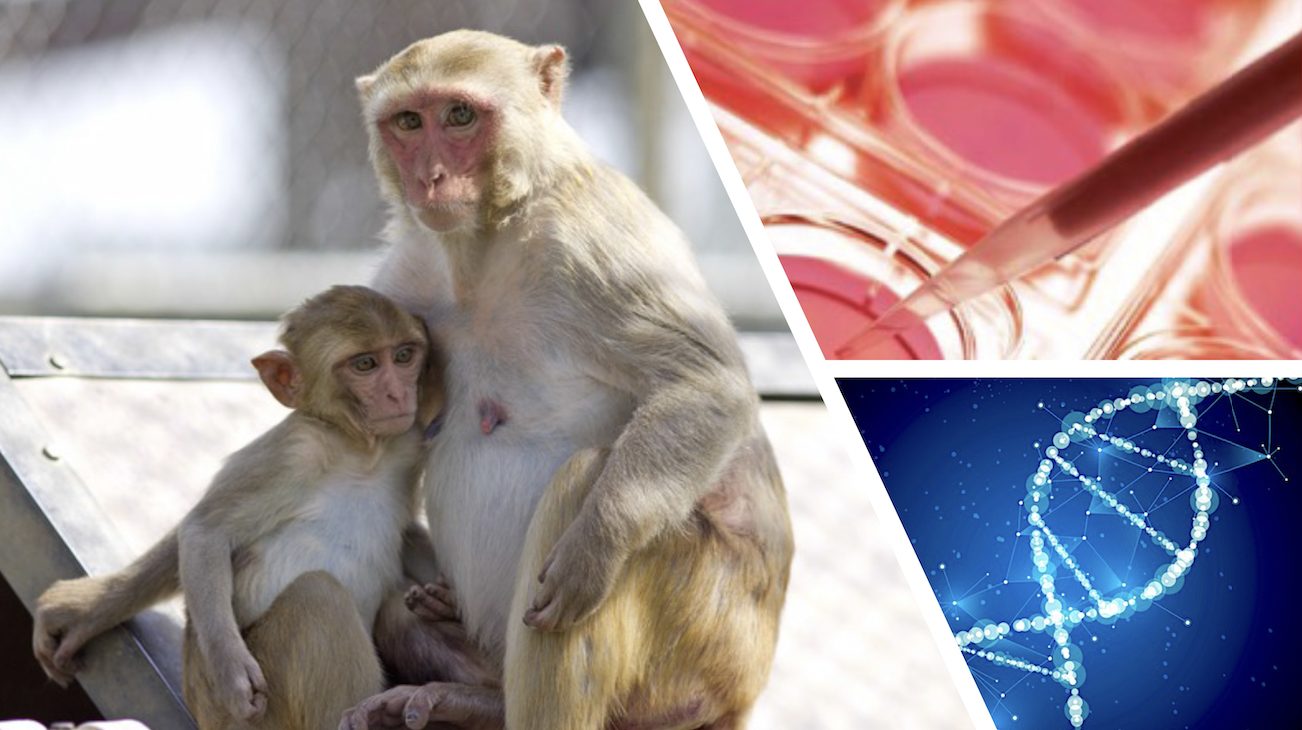Research activities at the California National Primate Research Center (CNPRC) contribute to the understanding of the underpinnings of chronic disease from the earliest developmental stages through maturation and aging, using new biomarkers and novel in vivo imaging tools. Translational teams of scientists represent a variety of disciplines and typically hold joint appointments in Schools (e.g., Medicine and Veterinary Medicine) and Colleges (e.g., Engineering, Letters and Science) throughout UC Davis.
The CNPRC is comprised of four research units with Core and Affiliate scientists that focus on specific areas of human and animal health. Innovative health research and investigational new drug (IND)-enabling investigations happen within each unit and across units, as research staff and scientists collaborate to study the effects of aging, specific health conditions and biobehavioral factors on individual primates. The breadth and depth of scientific expertise combined with the diverse colony of primates housed at the CNPRC allow an unprecedented study of health across the lifespan.

Cardiorespiratory Diseases Research
Scientists in the Cardiorespiratory Diseases Unit assimilate the fields of inhalation toxicology, mucosal immunology, cardiorespiratory physiology, and epigenetics to address critical issues central to the normal function of the heart, vasculature, and lung from birth through aging. A major area of scientific emphasis within the Cardiorespiratory Diseases Unit is the recognition of health impacts following exposure to inhaled toxicants (tobacco, ozone, wildfire smoke, cannabis) and infectious agents (influenza, SARS-CoV-2).
Learn More about the Cardiorespiratory Diseases Research Unit
Infectious Disease
Scientists in the Infectious Disease unit conduct preclinical/translational studies on a wide range of viral and bacterial pathogens (e.g., SARS-CoV-2, SIV, CMV, Zika virus, H. pylori), vaccine and drug interventions, and mechanisms of host-microbe interactions. Lifespan-related research is conducted through studies that focus on the impact of age on infection, pathogenesis, and vaccine efficacy. Research from this unit is also contributing to the management and health of nonhuman primates through infectious disease diagnostics.


Neuroscience and Behavior
Scientists in the Neuroscience and Behavior unit specialize in research on sociality, affective processes, cognition, neurobiology and behavior, utilizing a true lifespan approach by studying animals from the prenatal through aged phases of life. Research in this unit is translational by nature, with the development of many new primate models of human disorders, and with an important focus on the influence of social life on physical and mental health.
Learn More about the Neuroscience and Behavior Research Unit
Reproductive Sciences and Regenerative Medicine
Scientists in the Reproductive Sciences and Regenerative Medicine Unit study gamete biology and reproductive toxicology; regenerative medicine and stem cell transplantation; gene therapy and somatic cell genome editing; lifespan health–from the earliest developmental stages to aging populations; in vivo imaging tools and technologies for translational research; and conduct investigational new drug (IND)-enabling studies for human translation.
Learn More about the Reproductive Sciences and Regenerative Medicine Unit

CNPRC Scientist
Members of our scientific staff represent a variety of disciplines, including: cell and developmental biology, genetics, psychology, physiology, reproductive biology, virology, and immunology. Collaborative investigators work with our Core and Affiliate scientists to conduct specific research projects in their area of interest, benefiting from the extensive expertise of this world renowned group.
CNPRC Publications
Core and Affiliate scientists conducting research at the CNPRC have published a wide variety of papers based on their unique and cutting edge studies. These publications offer a great example of the many ways basic scientific knowledge gleaned from primate research can drive innovation in human and animal health.
Pilot Research Program
The Pilot Research Program provides resources and facilities for primate research to Principal Investigators who are not CNPRC Core Scientists, including expertise in all facets of the on-site portion of primate research. This program serves as a resource to the entire biomedical research community, including regional, national and international researchers.
